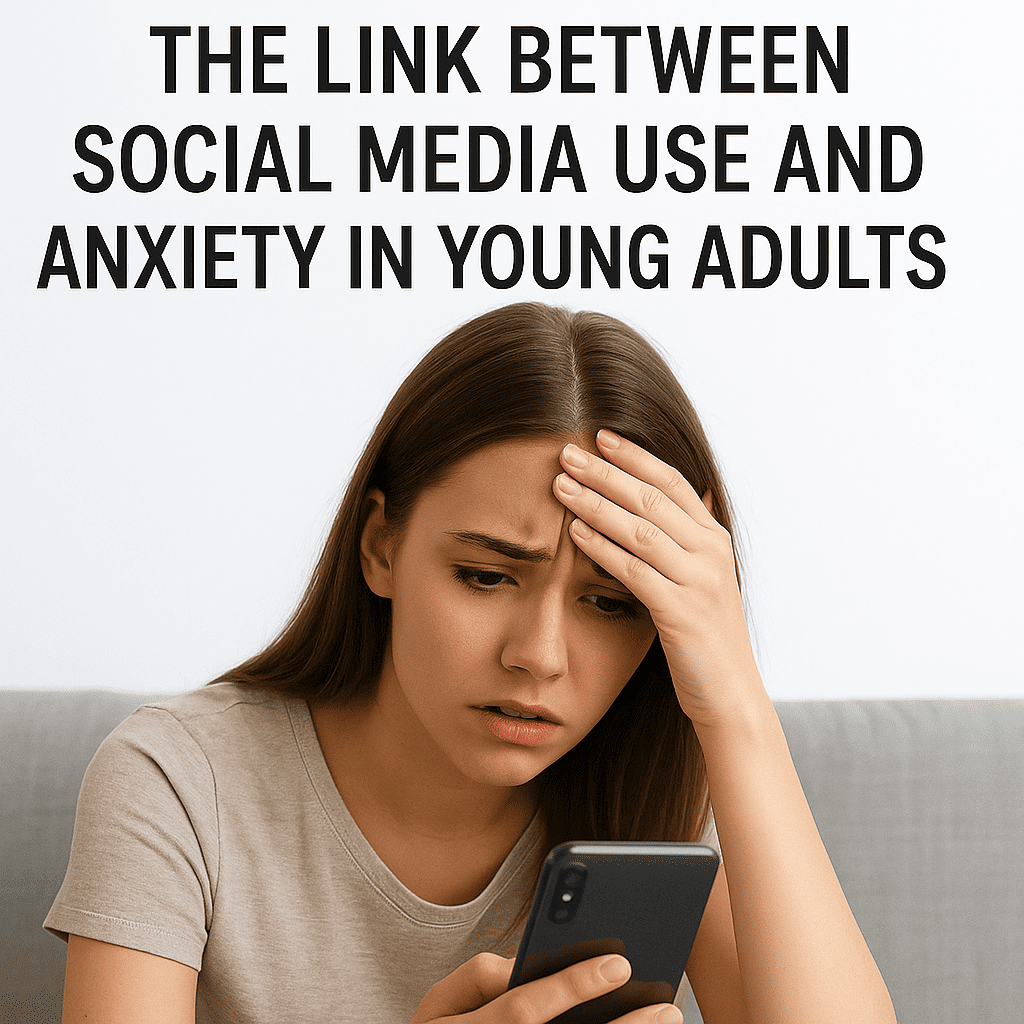
Link Between Social Media Use and Anxiety in Young Adults
In today’s digital age, social media has become more than just a form of entertainment; it is a lifestyle, an identity, and in many ways, a mirror for young adults. Platforms such as Instagram, TikTok, and Snapchat shape how they connect, express themselves, and even measure their self-worth. While these platforms provide opportunities for learning, networking, and global connection, the reality is that they also carry hidden costs that affect mental well-being. One of the most alarming outcomes is the rise of anxiety among young adults.throughout
Dr. David Rex Orgen observes that social media often creates a cycle of comparison and inadequacy. Young people scroll through carefully edited pictures of peers, celebrities, or influencers and begin to feel like their own lives are not “good enough.” This can lead to anxiety, poor self-esteem, and feelings of social isolation. Add to this the pressure of online bullying, the fear of missing out (FOMO), and the constant notifications, and it becomes clear that digital spaces are not always safe havens—they can be mental minefields.

The Deeper Impact
Anxiety linked to social media use doesn’t just affect mood. Studies show it can disrupt sleep, lower concentration in school or work, and increase the risk of depression. For many young adults, waking up to likes, comments, and trending challenges has become more urgent than focusing on health or academics. Over time, this dependency on online validation rewires the brain to seek approval externally, creating a fragile sense of self-worth.
Solutions and Pathways Forward
The good news is that change is possible. Small steps such as setting time boundaries on social media, muting or unfollowing accounts that trigger negative comparisons, and making space for offline friendships can create healthier habits. Schools and parents can also step in by teaching digital literacy and emotional resilience, equipping young people with tools to manage their online experiences without losing their mental balance.
Dr. Orgen emphasizes that mental health should be seen as equally important as physical health. Just as we teach children to brush their teeth and eat well, we must also teach them to navigate social media responsibly.
Connecting to the UN Sustainable Development Goals (SDGs)
This conversation is not just personal; it is global. The United Nations Sustainable Development Goals call on nations to prioritize mental health under SDG 3: Good Health and Well-Being and SDG 4: Quality Education. Addressing the link between social media and anxiety aligns with these global goals because it ensures that young people are not only educated academically but also supported emotionally. When youth have access to mental health education, they are better equipped to grow into resilient leaders who can contribute positively to their communities.
A Call to Action
InspireMind Global is committed to being part of this solution. Through advocacy, workshops, and outreach in schools, the organization is raising awareness about digital health and its impact on mental well-being. As Dr. Orgen explains: “We can not ignore the hidden battles our young people face in the digital space. To prepare them for the future, we must teach them not just how to use technology but how to use it wisely and well.”
Join InspireMind Global in advancing the UN SDGs and supporting young people’s mental health. Together, we can make social media a place of empowerment, not anxiety. Visit www.inspiremindglobal.com to learn how you can partner with us.
Recent Posts
When Cravings Speak Louder Than Words
Degrees Without Doors
Becoming the First Was Never About Recognition It Was About Assignment
Tags
+1 (614) 753-3925
info@inspiremindglobal.com




